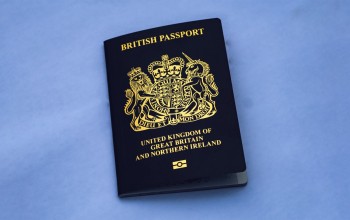— 19 Dec 2023 09:09:00 by Kate Moore

Embarking on a French trip to one our of residential centres in France? Ensure a seamless journey with our comprehensive guide to the latest EU border, passport and visa rules. We've sifted through the complexities, so you can focus on the educational adventure ahead.
Before Brexit, you could travel to EU countries on your passport right up to the point it expired. Now, school groups need to check the passport eligibility rules for their school trip destination. The rules for British passport holders visiting France state that:
Anyone who doesn't meet this criteria should allow plenty of time to apply for their new passport.
The EHIC gives holders access to state-provided emergency healthcare for free or reduced cost in France. Though not a substitute for school travel insurance, the EHIC can help reduce out-of-pocket medical expenses in the event that someone falls ill or has an accident while on a school trip in the EU.
The good news is that your European Health Insurance Card (EHIC) is still valid in the EU until it expires.
The 2024/25 academic year sees the introduction of the Entry/Exit System (EES) and European Travel Information and Authorisation System (ETIAS) for visitors to France and other EU countries. Here's what you need to know about the proposed systems:
EES machines will collect fingerprint data from Autumn 2024
ETIAS expected from Spring 2025
Some countries no longer accept collective/group passports and we do not yet know how group passports will operate alongside the new EES and ETIAS systems. To avoid border issues we recommend against using a collective passport.
Some EU countries offer visa exemptions for 'third country nationals' on a school trip.
When you arrive in France, be prepared to show your return ticket and proof of accommodation for your stay. We will provide these documents in your travel pack. You may also be asked to show that you have enough money for your stay.
The guarantee of free-roaming throughout the EU ended on 1 January 2021. This means that if your operator has reintroduced roaming charges you may now be charged more for using your mobile device in France.
You are not allowed to bring any dairy or meat products into the EU from the UK and so don’t be tempted to pack chocolate, biscuits, Bovril! The EU website states that the only exception is special foods required for medical reasons.